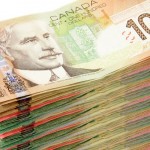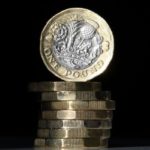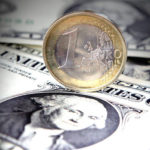The pound advanced for a third day against the US dollar, after revised data showed the UK economy expanded in line with preliminary estimates in the fourth quarter, adding to evidence the UK economy is gaining traction.
GBP/USD hit a session high at 1.6701 at 09:30 GMT, after which consolidation followed at 1.6695, adding 0.08% for the day. Support was likely to be received at February 25th low, 1.6643, while resistance was to be met at February 25th high, 1.6727. On February 17th, GBP/USD touched 1.6823, the strongest level since November 2009.
The UK Office for National Statistics reported today that the nations gross domestic product by 0.7% in the fourth quarter, in line with analysts expectations and unchanged from preliminary estimate. The UK economy expanded by 0.8% in the third quarter.
On annual basis, the UK gross domestic product surged by 2.7% in the fourth quarter from a year ago, down from an initial estimate of 2.8%, but exceeding the 1.9% increase in the previous quarter.
“We would need a massive economic disappointment or strong dovish signal from the Bank of England to really bring down sterling, so any dips will be bought into,” said Valentin Marinov, head of European Group-of-10 currency strategy at Citigroup Inc. in London, cited by Bloomberg. “The fundamentals remain supportive.”
In addition, total business investments rose by an annualized 8.5% rate in the fourth quarter, after falling by 2.4% annualized rate in the previous quarter.
On February 12, Bank of England raised its forecast for the UK economic growth in 2014 to 3.4% from 2.8% projected in November and predicted the first increase of interest rates will come in April 2015. Bank of England projected inflation of 1.9% in the next three years, below the central bank target of 2%.
The sterling has advanced 13% in the past twelve months, being the best performer of 10-developed-nation currencies tracked by Bloomberg Correlation-Weighted Indexes, while the US dollar rose mere 0.9%.
Meanwhile, on Tuesday it became clear that confidence among consumers in the United States decreased significantly in February due to concerns over the short-term prospects regarding business conditions, employment and income. According to results from a survey by the Conference Board research group, encompassing over 5 000 US households, the corresponding index of consumer confidence slowed down to a reading of 78.1 in February, after the revised down value of 79.4 in January. Preliminary estimates pointed to an increase to 80.0 this month.
The index of economic expectations fell to a reading of 75.7 in February from 80.8 in the preceding month. The index of current assessment, on the other hand, rose to 81.7 this month, reaching its highest level in almost six years. In January it stood at 77.3.
A separate report by the S&P/Case-Shiller revealed that the index of home prices, which measures the change in selling prices of homes in 20 of the largest cities in the United States, climbed at an annualized rate of 13.42% in December from a year ago, compared to a 13.71% increase in the previous month, the biggest increase since February 2006. Analysts had projected a 13.38% advance. On a monthly basis, home prices dipped 0.1% in December in line with analysts’ forecasts and after another 0.1% drop in November.
New home sales in the United States, a key indicator for current housing market conditions, probably fell 3.4% to the annualized level of 0.400 million in January, according to the median forecast of experts, after in December sales reached the annualized 0.414 million. Official figures are expected to be released at 15:00 GMT today.
Elsewhere, EUR/USD touched a session low at 1.3734 at 08:05 GMT, after which the pair traded little changed at 1.3739 at 10:42, losing 0.04% for the day. Support was likely to be received at February 25th low, 1.3715, while resistance was to be encountered at February 25th high, 1.3767.





